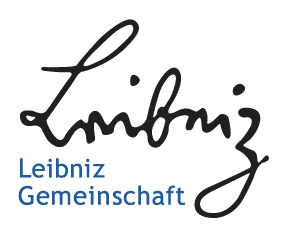TIB signs the Barcelona Declaration on Open Research Information
The Barcelona Declaration on Open Research Information published today, 16 April 2024, aims to emphasise the value of publicly accessible research information for the scientific community and for a transparent and fair assessment of its stakeholders and their resource allocation. TIB is one of the first signatories to this declaration. Here we would like to explain what this declaration means and why TIB supports it.
What is research information and why is it needed?
The term „research information“ describes the provision of metadata about actors, results and resources of the research system: e.g. researchers, research organisations (including funders), research projects, conferences, research data, research software or scientific monographs and journal articles. The description of these actors, results, and resources is essential for their visibility and discoverability. To avoid ineffective duplication of research, researchers should be able to identify the status of research and research projects carried out. They want to find out at which conferences they can present and discuss their findings. Funding bodies and research policy makers want to be able to recognise trends. The evaluation of research institutions and career decisions – for example in appointment procedures – are also partly based on research information.
Why open research information?
If research information is not freely available for the purposes mentioned above, a fair, inclusive and transparent scientific endeavour is not possible. If the basis for research evaluation – both the underlying metadata and the algorithms used – is not comprehensible, errors or gaps in the data cannot be identified and corrected. And then unfair and biased judgements cannot be countered in a meaningful way.
Open research information is also very useful from an institutional perspective. If you want to set up a research information system or enrich a library catalogue with citation counts or project metadata, the necessary metadata usually has to be created yourself or licensed for a lot of money. With a commons of open research information, everyone benefits from everyone’s contributions.
The Barcelona Declaration on Open Research Information
The Barcelona Declaration postulates four obligations for the signatory organisations. These commitments describe the handling of open research information, the infrastructure required for it and the steps needed to drive the transformation to open research information.
In the following paragraphs, we would like to show how and where the four commitments of the declaration are already being applied in the activities of TIB.
Commitment 1: We will make openness the default for the research information we use and produce
- Openness will be the norm for the research information we use, for instance to assess researchers and institutions, to support strategic decision making, and to find relevant research outputs.
- Openness will be the norm for the research information we produce, for instance information about our activities and outputs, with an exception for information for which openness would be inappropriate (‘as open as possible, as closed as necessary’).
The metadata of the TIB portal is available as open research information. All bibliographic data from the fields of technology and natural sciences (TIBKAT data) recorded by TIB for the library catalogue as well as the metadata of the electronic holdings freely available via the TIB portal are published on a regular basis. This currently comprises around 42.6 million entries (of which 5.4 million are from TIBKAT). The data is available as a dump in various formats or via various interfaces, which are documented in a public wiki. An OAI-PMH interface is also available, for example to retrieve the bibliographic description of a work via Open Linked Data in libraries in machine-readable form. Further information can be found at https://www.tib.eu/de/services/open-data.
Another example is the Open Research Knowledge Graph (ORKG), in which the content of scientific publications can be described and analysed in detail. The ORKG is based entirely on open principles and makes all metadata available via open interfaces. Various options are available for export: a complete dump, an interface, a SPARQL interface and even a Python library created specifically for working with the ORKG.
Commitment 2: We will work with services and systems that support and enable open research information
- For publishing services and platforms, we will require that research information generated in publication processes (e.g., metadata of research articles and other outputs) be made openly available through open scholarly infrastructures, using standard protocols and identifiers where available.
- For systems and platforms for the internal management of research information (e.g., current research information systems), we will require that all relevant research information can be exported and made open, using standard protocols and identifiers where available.
TIB is a key player in the national and international landscape of persistent identifiers (PIDs). Whether in the founding of DataCite, in the ORCID consortium service or in initiatives to create identifiers for conferences: the aim of these activities is always open metadata that can be uniquely and persistently referenced. In this way, research institutions are supported in setting up and expanding their own databases and research information systems. We are also involved in the development of open source software that is used to operate research information systems or publication platforms. In addition to our services and activities relating to the open source research information system VIVO, there are also various extensions to the journal management software Open Journal Systems (OJS) to capture metadata directly in the publication process and make it freely available and machine-readable.
Commitment 3: We will support the sustainability of infrastructures for open research information
- We take responsibility for supporting infrastructures for open research information, for instance by participating in community building and community governance and by providing fair and equitable contributions to the financial stability and development of these infrastructures.
- We expect the infrastructures that we support to implement good practices for community governance and sustainability (e.g., Principles of Open Scholarly Infrastructure).
Where we are involved in infrastructures through collaboration or co-financing, we expect a sustainable and community-based form of organisation.
Commitment 4: We will support collective action to accelerate the transition to openness of research information
- We recognize the importance of sharing experiences and coordinating action to promote a system-wide transition from closed to open research information.
- To facilitate this, we support establishing a Coalition for Open Research Information and strengthening collaboration with other related initiatives and organizations.
The field of research information is changing. New players are establishing themselves, and openness is being discussed more than ever. A global coalition for open research information is useful and necessary to drive this transformation and steer it in a meaningful direction. In the words of Sören Auer, Director of TIB:
Sören Auer
... arbeitet im Open Science Lab der TIB und beschäftigt sich dort (überwiegend) mit offenen Forschungsinformationen und Open Science. Weitere Informationen: https://tib.eu/christianhauschke
... works at TIB PID Competence Center.
https://orcid.org/0000-0002-0474-2410
... leitet den Bereich Publikationsdienste der TIB und koordiniert deren Open-Access-Aktivitäten.



